Professional Services Hubs for SME Growth and Foreign Investment Support
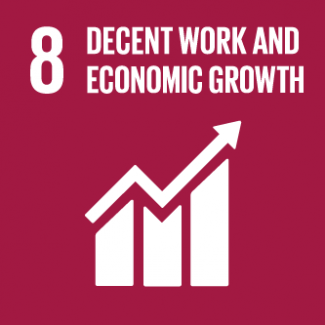
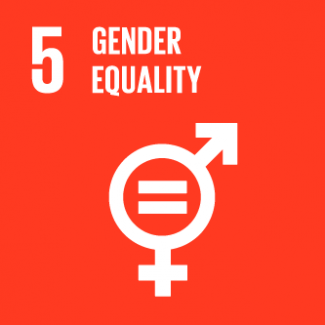
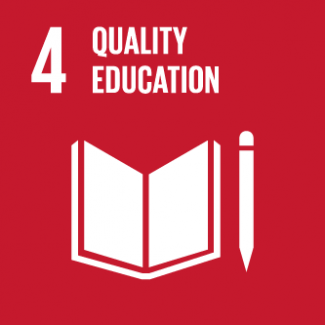
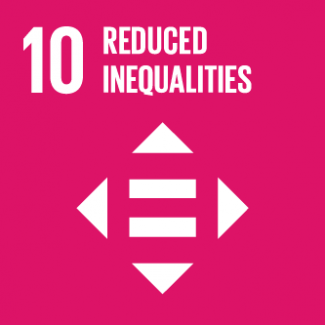
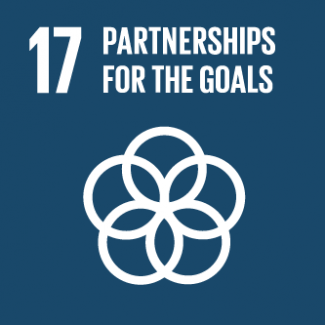
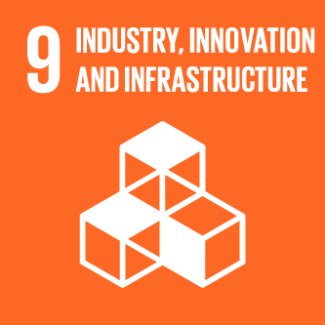
Business Model Description
Establish and operate multi-service professional hubs offering financial, legal, and consultancy services to SMEs and foreign investors. Provide business advisory, regulatory compliance, tax consultancy, and market entry strategies through fee-based consultations, subscription models, and digital platforms for remote access.
Expected Impact
Enhances SME growth, foreign investment, and high-skilled job creation, fostering economic resilience, gender inclusion, and business competitiveness.
How is this information gathered?
Investment opportunities with potential to contribute to sustainable development are based on country-level SDG Investor Maps.
Disclaimer
UNDP, the Private Finance for the SDGs, and their affiliates (collectively “UNDP”) do not seek or solicit investment for programmes, projects, or opportunities described on this site (collectively “Programmes”) or any other Programmes, and nothing on this page should constitute a solicitation for investment. The actors listed on this site are not partners of UNDP, and their inclusion should not be construed as an endorsement or recommendation by UNDP for any relationship or investment.
The descriptions on this page are provided for informational purposes only. Only companies and enterprises that appear under the case study tab have been validated and vetted through UNDP programmes such as the Growth Stage Impact Ventures (GSIV), Business Call to Action (BCtA), or through other UN agencies. Even then, under no circumstances should their appearance on this website be construed as an endorsement for any relationship or investment. UNDP assumes no liability for investment losses directly or indirectly resulting from recommendations made, implied, or inferred by its research. Likewise, UNDP assumes no claim to investment gains directly or indirectly resulting from trading profits, investment management, or advisory fees obtained by following investment recommendations made, implied, or inferred by its research.
Investment involves risk, and all investments should be made with the supervision of a professional investment manager or advisor. The materials on the website are not an offer to sell or a solicitation of an offer to buy any investment, security, or commodity, nor shall any security be offered or sold to any person, in any jurisdiction in which such offer would be unlawful under the securities laws of such jurisdiction.
Country & Regions
- Republic of North Macedonia: Skopje
- Republic of North Macedonia: Polog
- Republic of North Macedonia: Pelagonia
- Republic of North Macedonia: Vardar
- Republic of North Macedonia: Southwestern
Sector Classification
Services
Development need
To accelerate inclusive and sustainable economic growth, there is a pressing need to diversify the economy by enhancing sectors like tourism and professional services. This diversification can mitigate unemployment, especially in rural areas, and promote sustainable development. (1, 2)
Policy priority
The National Development Strategy 2024-2044 emphasizes sustainable economic growth, rural development, and tourism diversification. Aligning with EU policies, North Macedonia aims to integrate into the European market, enhancing its services sector's competitiveness. (1)
Gender inequalities and marginalization issues
Despite legal frameworks promoting gender equality, disparities persist in economic participation and decision-making roles. Women often face challenges in accessing resources, employment opportunities, and leadership positions within the services sector. (1, 3, 9)
Investment opportunities introduction
Expanding professional services, such as financial and legal consulting, can support SMEs and attract foreign investment, aligning with the country's EU integration aspirations. Investments and support to SMEs in sectors such as agri-tourism can capitalize on North Macedonia's rich cultural heritage and natural beauty, attracting eco-conscious travelers. (23)
Key bottlenecks introduction
Challenges include infrastructural deficiencies, particularly in rural areas, limited access to finance for small enterprises, and bureaucratic hurdles. Addressing these issues is crucial for the sector's growth and competitiveness. (1, 2)
Consumer Services
Development need
SMEs in the Republic of North Macedonia face challenges in accessing professional advisory services for financial planning, legal compliance, and market expansion. Strengthening the consumer services subsector through professional service hubs will help businesses scale, improve efficiency, and navigate regulatory complexities, enhancing overall business competitiveness. (19)
Policy priority
The National Development Strategy 2024–2044 prioritizes SME support, foreign investment attraction, and regulatory alignment with EU standards. Policies focus on digital transformation, business capacity building, and professional training. Government incentives, including grants for consultancy services and tax benefits, further reinforce the sector’s growth. (1)
Gender inequalities and marginalization issues
Women are underrepresented in business ownership and leadership, limiting their access to financial and legal advisory services. Strengthening professional services can help bridge this gap by offering targeted business support, legal assistance, and financial literacy programs for women entrepreneurs, fostering inclusivity and equitable economic participation. (20)
Investment opportunities introduction
Growing demand for legal, financial, and business consulting services presents strong investment potential. EU integration and regulatory reforms are driving SME reliance on compliance and advisory firms. Opportunities exist in digital consulting, cross-border advisory services, and strategic partnerships with global consultancy networks. (22)
Key bottlenecks introduction
A shortage of skilled professionals, slow digitalization of consultancy services, and a lack of structured advisory support for SMEs. Additionally, high levels of informality in business operations reduce demand for structured professional services. Addressing these requires workforce development, regulatory reforms, and digital transformation initiatives. (24)
Professional and Commercial Services
Pipeline Opportunity
Professional Services Hubs for SME Growth and Foreign Investment Support
Establish and operate multi-service professional hubs offering financial, legal, and consultancy services to SMEs and foreign investors. Provide business advisory, regulatory compliance, tax consultancy, and market entry strategies through fee-based consultations, subscription models, and digital platforms for remote access.
Business Case
Market Size and Environment
< USD 50 million
5% - 10%
In 2025, the professional services market in North Macedonia is projected to generate approximately US$4.87 million in revenue. (13)
As of 2022, there are 71,228 active enterprises in North Macedonia, with the majority being small and medium-sized enterprises. (14)
The professional services market is expected to experience an annual growth rate (CAGR 2025-2029) of 6.80%, leading to a market volume of US$6.33m by 2029. (13)
Indicative Return
> 25%
Given the global trend of professional services firms operating with gross profit margins above 30%, it is reasonable to infer that firms in North Macedonia could achieve similar margins. Local firms report gross margins above 30%. (11, 15)
Investment Timeframe
Short Term (0–5 years)
Multi-service professional hubs in North Macedonia, typically require a medium-term horizon to realize returns. (11)
Investors generally expect to see returns within a 3 to 5-year period, depending on factors like market conditions, operational efficiency, and the successful implementation of growth strategies. (11)
Ticket Size
< USD 500,000
Market Risks & Scale Obstacles
Market - Highly Regulated
Capital - Limited Investor Interest
Market - High Level of Competition
Impact Case
Sustainable Development Need
Strengthens SME growth and foreign investment, helping businesses navigate complex regulations, improve financial stability, and access international markets, fostering economic resilience and job creation. (24)
By creating high-skilled jobs in finance, law, and consulting, it encourages local talent retention, reducing emigration and fostering knowledge-sharing through collaborations with universities. (24)
Gender & Marginalisation
Women in the Republic of North Macedonia are underrepresented in business ownership and executive roles (3). Professional services' hubs promote women-led entrepreneurship by providing targeted financial, legal, and business advisory services.
Many women-led SMEs struggle to access professional services, limiting their business growth. The hubs ensure affordable, high-quality advisory support, helping women entrepreneurs navigate funding and regulatory barriers. (31)
Professional services hubs foster high-skilled job creation in finance, law, and consulting, prioritizing the inclusion of women, young professionals, and marginalized communities, helping to reduce employment disparities. (32)
Expected Development Outcome
Professional services hubs enhance SME competitiveness, enabling businesses to access investment, comply with regulations, and expand internationally, fostering job creation and economic resilience.
Professional services hubs create high-skilled jobs in finance, law, and consulting, encouraging local talent retention and university collaborations, reducing the emigration of skilled professionals.
Gender & Marginalisation
Professional services hubs provide tailored financial, legal, and business advisory services, helping women-led SMEs scale and ensuring greater female representation in executive and ownership roles.
Professional services hubs foster high-skilled employment in finance, law, and consulting, prioritizing women and young professionals, supporting career advancement and financial independence.
Primary SDGs addressed

8.1.1 Annual growth rate of real GDP per capita
8.3.1 Proportion of informal employment in total employment, by sector and sex
Annual growth rate of 3%. (12)
Annual growth rate of 4.7% in line with the NDS 2024-2044. (1)

5.5.2 Proportion of women in managerial positions
The share of women in managerial positions was 25.4% of all companies listed on the stock exchange. (3)
Secondary SDGs addressed




Directly impacted stakeholders
People
Gender inequality and/or marginalization
Planet
Corporates
Public sector
Indirectly impacted stakeholders
People
Gender inequality and/or marginalization
Planet
Corporates
Public sector
Outcome Risks
Large consultancy firms may dominate the market, making it harder for smaller or independent professionals to compete, limiting diverse service offerings.
SMEs in rural areas may struggle to access digital services, exacerbating urban-rural disparities in business advisory support and financial planning.
Stricter regulatory enforcement, while beneficial for compliance, may overburden small businesses with legal and administrative costs, discouraging formalization.
High costs for premium business services may exclude micro-enterprises and lower-income entrepreneurs, limiting access to critical financial and legal support.
Women-led SMEs may still face barriers in accessing financial services if gender biases persist in loan approvals and investment opportunities, reinforcing economic disparities.
Impact Risks
SMEs may not recognize the value of professional services or lack the financial capacity to engage, limiting the impact on business growth and formalization.
Frequent policy changes or lack of enforcement may reduce investor confidence and hinder the long-term scalability of professional service hubs.
Business hubs may concentrate in urban areas, leaving rural SMEs without adequate access to financial, legal, and consultancy support.
Growth in SME activity without proper sustainability measures may lead to higher resource consumption and increased carbon footprints from expanding enterprises.
Gender inequality and/or marginalization risk: Women-led businesses may continue to face implicit bias in funding and advisory services, limiting their ability to fully benefit.
Impact Classification
What
Positive economic growth through SME expansion and FDI attraction. Supports high-skilled job creation and business formalization, crucial for the SME-driven economy of North Macedonia
Who
Directly impacts SME owners, entrepreneurs, and young professionals. Indirectly benefits families, rural businesses, and marginalized groups
Risk
Low SME engagement, regulatory shifts, and urban-centric service concentration may limit impact. Women-led businesses may still face barriers in accessing funding and advisory services.
Contribution
By strengthening and coordinating advisory services, the business model ensures that SMEs receive the support they need to grow, formalize, and compete effectively.
How Much
Expected to impact thousands of SMEs and professionals over the next 5-10 years, improving business survival rates, job creation, and foreign investment inflows (33, 34, 35, 36)
Impact Thesis
Enhances SME growth, foreign investment, and high-skilled job creation, fostering economic resilience, gender inclusion, and business competitiveness.
Enabling Environment
Policy Environment
The National Development Strategy 2024-2044 prioritizes smart specialization, support for tourism and professional services, green and digital transformation, SME competitiveness, women’s economic inclusion, and rural development—aligning with EU integration and fostering inclusive, sustainable growth. (1)
The Smart Specialization Strategy promotes innovation-driven growth by enhancing tourism, ICT, and agri-food sectors, fostering green and digital transitions, and supporting SMEs through knowledge, research, and technology for competitiveness and sustainability. (2)
Digital Agenda for Western Balkans supports the region’s digital transformation by promoting broadband access, digital skills, e-Government, cybersecurity, and integration into the EU Digital Single Market—boosting innovation, job creation, and inclusive economic growth. (15)
Financial Environment
Financial incentives: The national Fund for Innovation and Technological Development used to offer grants for start-ups at least once a year. (37)
Fiscal incentives: Investors operating within Technological and Industrial Development Zones (TIDZs) enjoy a 10-year exemption from profit tax and corporate income tax, which are otherwise set at a flat rate of 10% outside these zones. (25)
Regulatory Environment
Law on Companies provides the legal foundation for starting and operating businesses. It enables SME growth, formalization, and governance, which are essential for expanding tourism and professional services in line with diversification and EU integration goals. (4)
Law on Foreign Exchange Operations regulates cross-border transactions and capital flows, enabling foreign investment in tourism and consulting. It supports SME internationalization and market access—key for economic diversification and EU market integration. (5)
Law on Accounting Practice ensures financial transparency and compliance, helping SMEs access finance and build investor trust. It supports formalization and capacity building in tourism and services, fostering sustainable and inclusive economic growth. (6)
Law on E-Commerce regulates online business activities, ensuring legal certainty for digital transactions. It supports SME growth in professional services by enabling online sales, bookings, and consulting. (7)
Marketplace Participants
Private Sector
Kreston Macedonia, BDO North Macedonia, Ecolog International and many other professional services hubs.
Government
Ministry of Economy and Labor, Invest North Macedonia, Technological Industrial Development Zones.
Multilaterals
European Bank for Reconstruction and Development (EBRD), European Investment Bank (EIB), UNDP, KfW.
Non-Profit
Institute of Accountants and Chartered Accountants of the Republic of Macedonia (ISOS).
Target Locations
Republic of North Macedonia: Skopje
Republic of North Macedonia: Polog
Republic of North Macedonia: Pelagonia
Republic of North Macedonia: Vardar
Republic of North Macedonia: Southwestern
References
- (1) National Development Strategy of the Republic of North Macedonia 2024-2044
- (2) Smart Specialization Strategy of the Republic of North Macedonia
- (3) Gender analysis of the management bodies of joint stock companies listed on the Macedonian Stock Exchange for 2024, https://www.mse.mk/mk/news/13/3/2025/gender-analysis-of-the-management-bodies-of-joint-stock-companies-listed-on-the-macedonian-stock-exchange-for-2024
- (4) Law on Companies, https://www.economy.gov.mk/Upload/Documents/ZTD%20konsolidiiran.pdf
- (5) Law on Foreign Exchange Operations (Official Gazette no. 34/01, 49/01, 103/01, 51/03, 81/08, 24/11, 135/11, 188/13, 97/15, 153/15, 23/16, 110/21)
- (6) Law on Performing Accounting Practice (173/2022), https://dejure.mk/zakon/zakon-za-vrshenje-na-smetkovodstveni-raboti-1
- (7) Law on Е-Commerce (https://economy.gov.mk/Upload/Documents/%D0%97%D0%B0%D0%BA%D0%BE%D0%BD%20%D0%B7%D0%B0%20%D0%B5%D0%BB%D0%B5%D0%BA%D1%82%D1%80%D0%BE%D0%BD%D1%81%D0%BA%D0%B0%20%D1%82%D1%80%D0%B3%D0%BE%D0%B2%D0%B8%D1%98%D0%B0-%D1%80%D0%B5%D0%B4%D0%B0%D0%BA%D1%86%D0%B8%D1%81%D0%BA%D0%B8%20%D1%82%D0%B5%D0%BA%D1%81%D1%82.pdf)
- (8) Strategy for Gender Equality, 2022-2027, https://www.mtsp.gov.mk/content/pdf/2022/strategija_/%D0%A1%D1%82%D1%80%D0%B0%D1%82%D0%B5%D0%B3%D0%B8%D1%98%D0%B0_%D0%B7%D0%B0_%D1%80%D0%BE%D0%B4%D0%BE%D0%B2%D0%B0_%D0%B5%D0%B4%D0%BD%D0%B0%D0%BA%D0%B2%D0%BE%D1%81%D1%82_2022_2027.pdf
- (9) Interview with Gazmend Ajdini, former employee in Ecolog International , conducted on March 18th, 2025
- (10) Kreston Macedonia, https://www.kreston.mk/en/AboutUs.html
- (11) Interview with Dragan Dimitrov, Managing Partner of BDP North Macedonia, https://www.bdo.mk/en-gb/about/bdo-macedonia/why-bdo
- (12) Interview with Ivica Jevtic, Senior Partner, JPM partners, https://www.jpm.law/lawyers/
- (13) Professional Services - North Macedonia, Statista, https://www.statista.com/outlook/tmo/cybersecurity/security-services/professional-services/north-macedonia?currency=USD
- (14) Number of active enterprises, 2022; State Statistical Office, https://www.stat.gov.mk/prikazisoopstenie_en.aspx?rbrtxt=79
- (15) Professional Services Industry Profitability, CSIMarket, 2025; https://csimarket.com/Industry/industry_Profitability_Ratios.php?ind=908
- (16) Business Valuation & Return on Investment (ROI), https://morganandwestfield.com/knowledge/business-valuation-return-on-investment-roi/
- (17) Active population in the Republic of North Macedonia, 2024, LABOUR MARKET, State Statistical Office, No: 2.1.25.04 from 14.03.2025, https://www.stat.gov.mk/PrikaziSoopstenie.aspx?rbrtxt=98
- (18) Law on Labor Relations, https://mtsp.gov.mk/content/pdf/trud_2017/pravilnici/16,11-%D0%B0%D0%BA%D0%BE%D0%BD%D0%A0%D0%B0%D0%B1%D0%9E%D0%B4%D0%BD%D0%BE%D1%81%D0%B8.pdf
- (19) EU for Economic Growth. (2024, October 10). Empowering SMEs in Polog, North-East, South-West, and Prespa (Municipality of Resen) regions with 50%-subsidized business support services – Your chance to grow with EU4EG.
- (20) European Bank for Reconstruction and Development. (2023, May 25). Roadmap to support female entrepreneurship launched in North Macedonia. https://www.ebrd.com/home/news-and-events/news/2023/roadmap-to-support-female-entrepreneurship-launched-in-north-macedonia.html
- (21) European Commission. (2025, February 4). Screening report North Macedonia Cluster 2 – Internal Market. https://enlargement.ec.europa.eu/document/download/55101d35-f157-43d8-a33d-5f03b01b862d_en
- (22) European Commission. (2024, October 30). North Macedonia 2024 Report. https://enlargement.ec.europa.eu/document/download/5f0c9185-ce46-46fc-bf44-82318ab47e88_en
- (23) Western Balkans Investment Framework. (2025). Go Digital programme supports small businesses in North Macedonia. https://www.wbif.eu/news-details/smes-go-digital-supports-small-businesses-north-macedonia
- (24) OECD (2024). Western Balkans Competitiveness Outlook 2024: North Macedonia. OECD Publishing. https://doi.org/10.1787/8207326d-en "25) Law on Technological Development Zones. “Official Gazette of Macedonia” 14/07, 103/08, 130/08, 139/09 156/10,127/12,41/14,160/14,72/15,129/15,173/15,192/15,217/15,30/16 and 83/18"
- (26) Program for the Development of the Skopje region 2021-2026, https://skopjeregion.gov.mk/dokumenti/programa-za-razvoj/
- (27) Economic Chamber of North-West Macedonia – Drilon Iseni column on regional development disparities (Telegrafi news, 2019)
- (28) Center for Development of the Pelagonija Planning Region, https://pelagonijaregion.mk/en/region/business-communities/
- (29) Program for the Development of the Vardar Planning Region, https://vardarregion.gov.mk/web/wp-content/uploads/2021/08/Programa-za-Razvoj-na-Vardarski-Planski-region-2021-2026.pdf
- (30) Program for the Development of the Southwestern Planning region, https://southwestregion.mk/dokumenti/programa-za-razvoj/
- (31) International Trade Centre (ITC). (2020). SheTrades Outlook: A Framework to Advance Gender Equality in Trade. Geneva: International Trade Centre. https://intracen.org/media/file/32222
- (32) European Commission. (2020). 2020 report on equality between women and men in the EU. Directorate-General for Justice and Consumers. https://ec.europa.eu/info/sites/default/files/aid_development_cooperation_fundamental_rights/annual_report_ge_2020_en.pdf
- (33) World Bank. (2020). Republic of North Macedonia: Action Plan for Recovery of Growth and Jobs. https://documents1.worldbank.org/curated/en/809991603810854005/pdf/Republic-of-North-Macedonia-Action-Plan-for-Recovery-of-Growth-and-Jobs.pdf
- (34) European Commission. (2021). 2021 SME Country Fact Sheet: North Macedonia. https://enlargement.ec.europa.eu/system/files/2021-09/north_macedonia_-_sme_fact_sheet_2021.pdf
- (35) European Bank for Reconstruction and Development. (2023). The EBRD in North Macedonia: Results Snapshot. https://www.ebrd.com/content/dam/ebrd_dxp/assets/pdfs/country-strategies/north-macedonia/The-EBRD-in-North-Macedonia-Results-Snapshot.pdf
- (36) Invest North Macedonia. (2025). Boost Your Business Growth: Discover North Macedonia's Financial Support Measures for Investments and Competitiveness. https://www.linkedin.com/pulse/boost-your-business-growth-discover-north-macedonias-trajkovska-p9tdf
- (37) Fund for Innovation and Technological Development, https://fitr.mk/%d0%bf%d0%be%d0%b2%d0%b8%d1%86%d0%b8/















